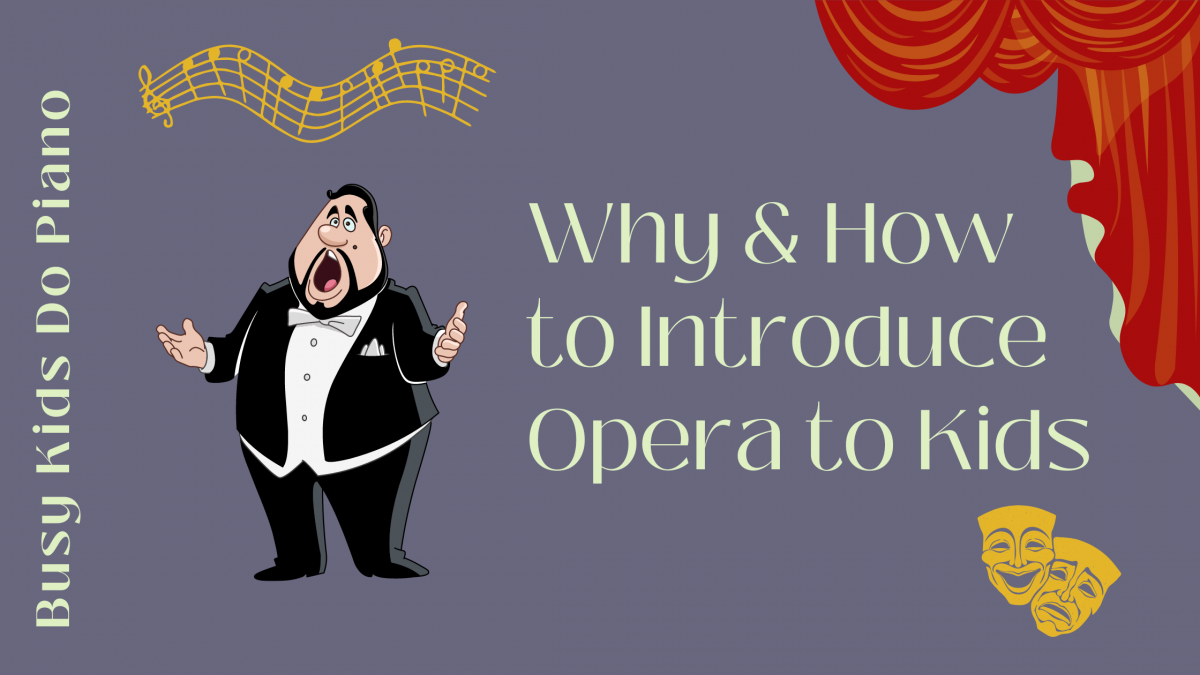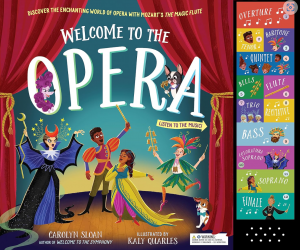Music is a powerful force that can enrich a child’s life in countless ways. In the vast world of classical music, introducing kids to opera opens doors to a unique and enchanting experience. Let’s explore why opera is a fun and interesting way to connect kids with the rich history and relevance of classical music.
WHY INTRODUCE KIDS TO OPERA?
Opera is more than just music; it’s a captivating blend of music, drama, and storytelling. The stories told in operas often feature vibrant characters and compelling plots that capture the imagination of young minds. The combination of music and narrative makes opera a magical art form that can transport children to different worlds and eras.
Opera also provides a platform for a wide range of emotions to be expressed through music. From the joyous melodies to the poignant arias, children can experience the emotional depth of music in a way that is unique to opera. It’s a powerful tool for connecting kids with the expressive language of classical music and fostering an appreciation for its emotional nuances.
The visual spectacle of opera productions is another aspect that appeals to children. Elaborate costumes, imaginative sets, and theatrical elements create a visually stimulating experience. The combination of auditory and visual elements ensures that opera becomes a multisensory journey, making it an engaging form of entertainment for kids.
By introducing children to the world of opera, we provide them with a unique and enriching cultural experience that can shape their appreciation for music in the years to come.
RESOURCES TO INTRODUCE KIDS TO OPERA
- Busy Kids Love Music Podcast: To kickstart the opera exploration, consider listening to one of the following episodes:
- The Opera: This episode gives a broad overview of what the opera is and some terminology associated with it. This will help your child to develop a basic comprehension and vocabulary around the opera! There’s also many excerpts of different operas throughout the episode.
- Folk Music of Japan: While this episode is not exclusively about opera music, it does highlight and give examples of Noh musical theater, which is often referred to as “Japanese Opera.”
- The Magic Flute: We’ll explore one of Mozart’s most-renowned works in this episode, and learn more about what an overture is and why one of the characters in this opera is considered the most challenging to play.
- Verdi’s Aida: This opera is especially perfect for history and geography lovers alike! Visit ancient Egypt in this lavish opera composed by an Italian maestro.
2. Children’s Books and Stories: Delve into the world of children’s literature that introduces opera concepts or tells stories related to famous operas. Look for resources that combine storytelling with information about opera history and composers to make learning even more engaging. My personal favorite book to engage my kids with is this delightful, interactive book by Carolyn Sloan.
I was given a copy of this book to review, and my children absolutely adore it. (In fact, my 11-year-old has requested it on a nightly basis for about a week now — hah!) The colorful pictures are lovely and the sound buttons that kiddos can push during the story help them to truly understand the vocabulary that they learn from the text.
3. Live Performances for Kids: Keep an eye out for local or online events that offer live opera performances tailored for young audiences. Experiencing opera in a live setting can be a magical experience for kids, allowing them to witness the art form up close. Many movie theaters even offer showings of filmed performances from The Metropolitan Opera. While opera has its share of heavy subjects as topics, there are many out there more along the lines of a PG or even G-rating for families to enjoy. A few I might suggest include Humperdinck’s Hansel and Gretel, Mozart’s The Magic Flute and Knussen’s Where the Wild Things Are (based on Maurice Sendak’s children’s book).
By exploring these kid-friendly resources, parents and educators can create a vibrant and enriching journey into the world of opera for children. Whether through listening to a podcast episode, reading a captivating book or attending a live performance, these resources make it easier than ever to make opera an integral part of a child’s cultural upbringing.
Opera is not just an art form; it’s a gateway to a world of creativity, emotion, and enchantment. Let the curtain rise on a musical adventure for your child!




